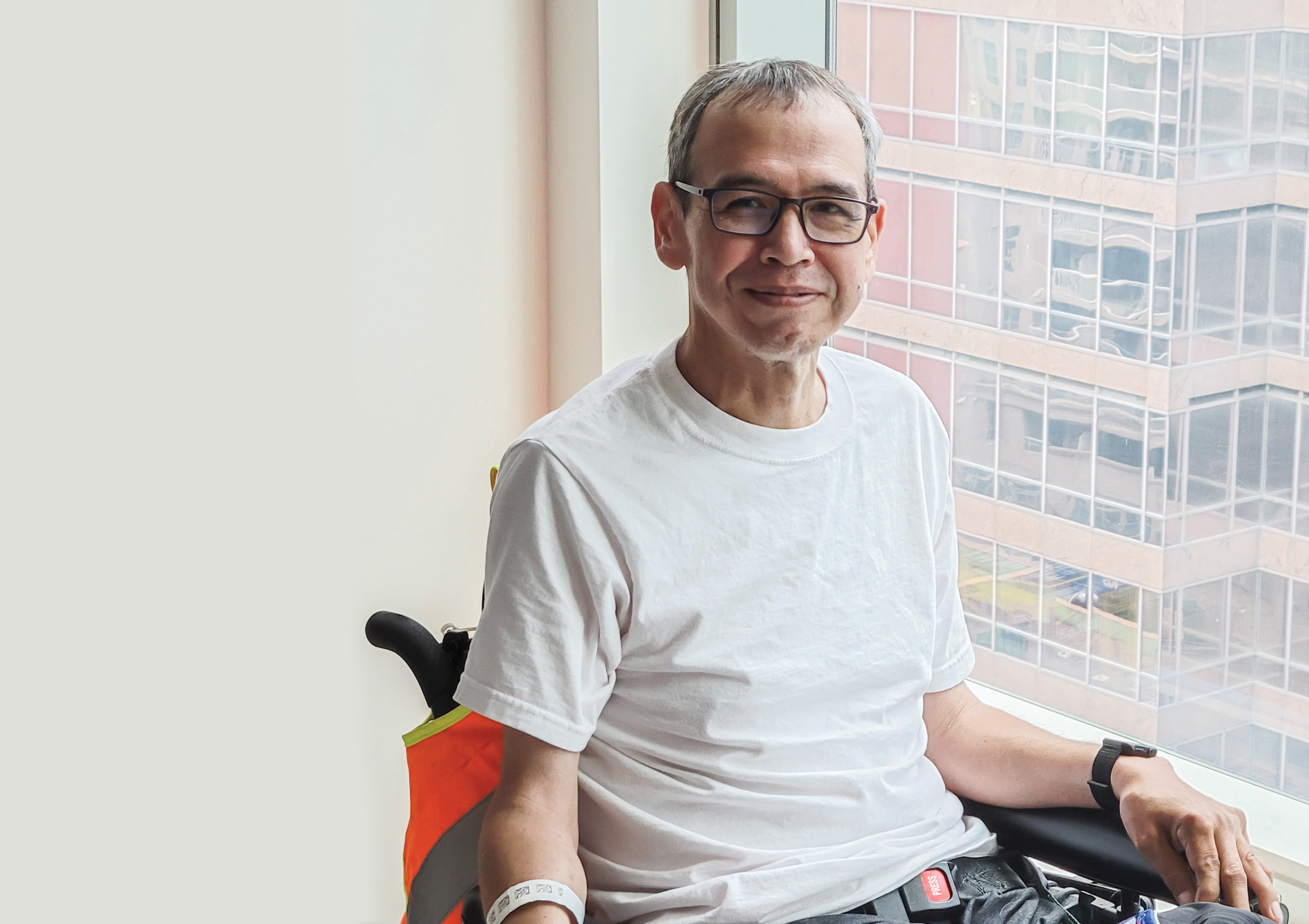Winter 2021 (Volume 31, Number 4)
Patient Portrait:
Rob Lackie
Download PDF

Photo by Seema Marwaha
I am Inuit. I was born in Happy Valley, Newfoundland
and Labrador, the most southern community in our
ancestral territory. My mom is a residential school survivor.
When I was born, the Canadian government deemed
her unfit to be a mother (which was not true), and I was
placed into foster care. I didn’t meet my mom until I was in
my mid-30s. I didn’t know I had any siblings. Now I know I
have a younger sister. I was in my fourth foster home when
I was adopted by a non-Indigenous family in Ontario. This
is what consecutive generations of assimilation looks like.
The Government of Canada has torn many Indigenous families
apart this way.
I studied business administration and worked for big
banks before moving to the education sector. I wanted to
make a bigger impact on people’s lives and think about
more than just being a part of the bottom line for big business.
My focus has been to help Indigenous youth access
education from elementary to postsecondary. It’s really
challenging for so many of them to progress in their education
without adequate resources. I won an award from
Aboriginal Affairs for this work in 2011.
I was diagnosed with severe rheumatoid arthritis in
1989 and I’ve had 15 surgeries, mostly in relation to this.
My last major surgery was in 2018, which has led me to
require a powered wheelchair.
When in a hospital, I am rarely asked if I’m Indigenous
(many assume I am from the Philippines). When I have had
a bad hospital experience, I wonder if my race is the main
factor.
Recently, I was admitted to a stroke unit because I had
difficulty moving the left side of my body. I’m deaf in my
right ear and have only partial hearing in my left. When I
would press the call button, I could not hear when the call
was being answered. Eventually, the staff member answering
the calls got upset with me for calling so many times
and hung up on me when we finally connected. It is harmful
to discourage people to ask for help when they are sick.
My pain medication was stopped abruptly by a doctor
in training without any discussion with me, my admitting
doctor or even my family physician. I was in such severe
pain from the sudden stop that I couldn’t get out of bed.
Just because I’m Indigenous does not mean I will get addicted
to pain medications. Any culture or race is at a similar
risk of addiction.
I posted about my pain on social media and some prominent
community advocates stepped in. It’s unfortunate
that Indigenous people need to have advocates involved to
make our health care better. We don’t know if this is just
the way the system works or if we are being labelled, prejudged
and racialized by the system. Either way, it’s deeply
unfair and the system needs to be fixed now.
Reproduced with permission from the CMAJ.
August 2021. All rights reserved.
|
